The NZSA were the recipients of a very generous donation ($48,000) from Professor Campbell’s estate. A group of the executive met to discuss options for use of this money, and recommended to the executive that the bequest be invested and interest from this be made available for special projects. The amount of funding available each year is roughly $1500.
Applications are received twice a year (April/October) for funding of special projects that were within the interests of Professor Campbell. Applications should be made to the Convenor of the Awards Committee.
To better understand Professor Campbell’s interests, the following is summarised from a transcript of an interview of Professor Campbell with David Vere-Jones and Sharleen Forbes in 1987:
- the importance of a good mathematical foundation for any teaching of statistics;
- the likelihood of developments in mathematics being stimulated by the needs of the social sciences, and the role that women, in particular, will play in this;
- more generally the need to help women mathematicians;
- the responsibility he felt towards ‘second-tier’ students – the ‘elite’ ones were seen as ‘self-propelling’;
- effective connections between schools and universities;
- the importance of instilling intellectual honesty – much wider than just mathematics.
Overall he had a vision of mathematics and statistics as a unified whole.
Also, in recognition of Professor Campbell, the NZSA have the NZSA Campbell Award. The purpose of the award is to promote statistics in NZ and to recognise an individual’s contribution to the promotion and development of statistics. For more details see the NZSA Campbell Award page.
Professor Campbell is pictured below, lecturing a 1962 Honours class. The NZSA is extremely grateful for his generosity.
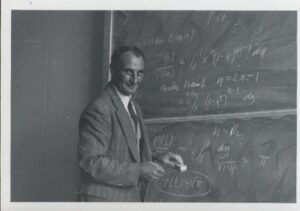
Campbell Bequest Fund Projects
Sponsorship of the Ihaka Lecture Series (University of Auckland)
2018: In July, sponsorship of $3500 (+GST) [“Sponsorship package 2”] was provided from the Campbell Bequest Fund to support the Ihaka Lecture Series at the University of Auckland.
International Project for Data Science at senior secondary school level
2018: In February, an award of $1600 was made to Prof. Chris Wild, to support his costs in attending a meeting in Los Angeles (11-13 March 2018) to discuss the teaching of data science at secondary (high) school level.
Early Career Statistician Networking at Australian Young Statistician’s Conference
2017: A request for funding was received from Lisa Hall (Student and Early Career Statistician’s Representative). The application was for support for Lisa and Timothy Bilton (Otago Student & Early Career representative) to attend the Australian Young Statistician’s Conference. The purpose was to strengthen relationships between early career/young statisticians’ groups in NZ and Australia. The Committee agreed to support this request to the tune of $1200.
Apps for training in Official Statistics
2015: An award of $3000 was made to John Harraway and Sharleen Forbes to pay the travel of the web designer, Dominic Martignetti, from the RSS Centre for Statistics Education at Plymouth University to Dunedin in January this year to work on Apps for training in Official Statistics.
Report from John Harraway:
The three free interactive Apps can be accessed at:
http://iase-web.org/islp/Resources.php?p=Apps
which is to the Resources Section of the International Statistics Literacy Project web site. You might like to look at them. They were released in a well attended Special Topic Session (STS074) two weeks ago at the World Statistics Congress in Rio. The Campbell Fund has been acknowledged. The Apps which contain many examples and follow up exercises graduated in difficulty can be used on tablets and phones as well as desk tops.
You may be interested to know that there is international interest in yet another statistics resource to come out of New Zealand. In the last 12 hours there has been positive interest from Mozambique, Angola, Malawi, The Gambia, Kenya and South Africa. Also the United Nations Statistics Institute for Asia and the Pacific will be using the Apps next week for a workshop in Bangkok for statisticians in National Offices from Asia and Africa.
Currently we are investigating translation into Portugese with the help of the United Nations in Mozambique. They have also offerred to make data from their country available. This is a project of major interest and impact for developing countries. We would like to translate into Spanish and French but clearly this will require much collaboration still to be resolved.
Both Sharleen Forbes and I thank the Campbell Fund for making the grant to us which has allowed an interesting statistics education resource to be launched internationally. And it is free.
John Harraway
New Zealand Mathematics and Statistics Postgraduate Conference 2014
2014: An award of $500 was made in support of the 2014 New Zealand Mathematics and Statistics Postgraduate Conference, which took place at Whitianga.
From the organising team :
We are writing to thank the NZSA for supporting the NZMASP conference this year, which took place last week. The conference was a great success with almost 60 attendees from Mathematics and Statistics departments from universities across New Zealand; a full report of the conference is attached to this email.
The NZMASP conference is a student run and organised conference and hence, we are grateful for the support you offered this year and we hope you will consider sponsoring it again in the future.
New Zealand Mathematics and Statistics Postgraduate Conference 2013
2013: An award of $500 was made in support of the 2013 New Zealand Mathematics and Statistics Postgraduate Conference, which took place at Cass.
New Zealand Mathematics and Statistics Postgraduate Conference 2011
2011: An award of $500 was made to Michael Snook in support of the organization of the 2011 New Zealand Mathematics and Statistics Postgraduate Conference, which took place at Silverstream Retreat (near Upper Hutt) in November.
Report on the New Zealand Mathematics and Statistics Postgraduate (NZMASP) Conference, November 2011
This year the New Zealand Postgrad Conference was located in Silverstream. The weather was a little bit erratic. However, this was not able to dampen the mood of the attendees as a good time was had by all. Everybody came away with new friends, providing a great jump start to their network of colleges for their careers. This is a great result as these people will likely be the future mathematicians and statisticians of New Zealand and its creating such networks of friends that convince masters students to become PhD students and PhD students to continue on into academia.
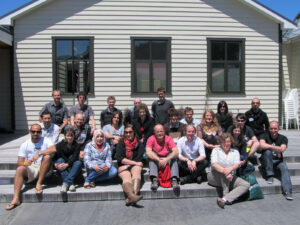
The three invited speakers (Mike Plank from the University of Canterbury, Richard Penny from Statistics New Zealand and Peter Donelan from Victoria University of Wellington) all gave great talks accessible to an audience with a wide range of backgrounds. On that note, all the student talks were of a high quality. In particular, those students who had never presented at a conference before managed to ignore their nerves and deliver great talks. This is a large part of the motivation behind the conference and it was quite clear how much less intimidating for the first time students presenting at this conference was.
Congratulations should go to the prize winners. The prize for best pure maths talk went to Ben Clark of Victoria University of Wellington. Victoria University of Wellington student Melissa Welsh also got the prize for the best applied mathematics talk. The statistics prize went to Daniel Turek from the University of Otago. Finally the prize for best talk voted by the students went to Edoardo Persichetti of the University of Auckland. A big thank you to our sponsors: Institute of Information and Mathematical Science, the New Zealand Statistics Association, Hoare Research Software, the Royal Society of New Zealand, the University of Auckland Department of Mathematics, the New Zealand Institute of Mathematics and its Applications, Australia and New Zealand Industrial and Applied Mathematics, the New Zealand Mathematics Society and the Department of Mathematics, Statistics and Operations Research at Victoria University of Wellington. Without your generosity this conference would not have happened.
We all look forward to next year where this conference will be tentatively held in Auckland or Dunedin. With the number of great enthusiastic people at the conference I am sure the future of NZMASP is in good hands.
Michael Snook
Developing Bootstrapping and Randomisation in New Zealand High Schools
2011: An award of $546 was made to John Harraway (University of Otago) to fund travel costs associated with a large project on the development of bootstrapping and randomisation in New Zealand high schools.
ISLP Poster Competition
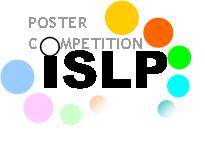
2010: A grant of $500 was made towards the national prizes for the International Statistical Literacy Project (ISLP) International Poster Competition. The mission of this ISI organisation is to support, create and participate in statistical literacy activities and promotion around the world. The aim of the poster competition is to promote statistics learning and education at school level.
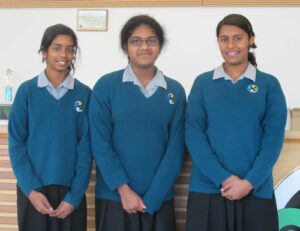
Congratulations to Asha, Swashna and Sasha (Mission Heights Junior College), pictured above, and Megan, Jack and Mitchell (Cashmere Primary School), pictured below, for coming first equal in the ISLP National Statistics Competition.
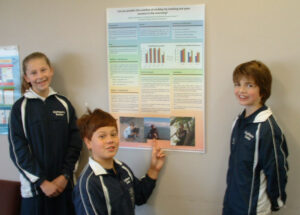
Click here for a report on the Competition.
Results of the International Competition
Congratulations to Megan, Jack and Mitchell for their success in the International Competition. Their poster, “Can you predict the weather at midday by looking out your window in the morning?”, won third prize in the intermediate section. For more information visit the Online Newsletter #73.
New Zealand Mathematics and Statistics Postgraduate Conference 2010
2010: An award of $500 was made to support the 2010 New Zealand Mathematics and Statistics postgraduate conference, held 21-25 November at Westport.
Women in Statistics Conference 20.10.2010
2010: A grant of $500 was provided to support the Women in Statistics Conference.
The Conference, hosted by the Victoria University’s School of Government and held at Victoria University, was well attended with 55 registrations and a number of on-the-day attendees from a range of backgrounds. Statistics New Zealand, the New Zealand Statistics Association, the New Zealand Institute of Mathematics and its Applications (NZIMA), the Statistics Department and Faculty of Science of Auckland University, the Department of Mathematics and Statistics at University of Canterbury and the School of Mathematics, Statistics and Operations Research at Victoria University all provided sponsorship. This covered administrative costs, attendance at the conference and catering (morning and afternoon teas and a light lunch).
Hon Pansy Wong, Minister of Women’s Affairs, opened the Conference and enthusiastically promoted the importance of statistics. As well as acknowledging pioneers in gender equity in statistics education she instanced statistics of direct relevance to women, such as the gender pay gap. The Chair for the Conference was Kim Hill who unfortunately was available for the afternoon only. However, she was a lively interjector often providing an alternative perspective and an air of levity. The six speakers presented a range of papers and perspectives designed both to convey information and to stimulate discussion.
Professor Natalie Jackson’s paper, made parallels between the life of Rita, in the 1983 film ‘Educating Rita’ (a 26 year old Liverpudlian who enrolled in Britain’s Open University in an attempt to improve her situation) and New Zealand women at that time. She made the point that women have increasingly embarked upon further education as their families grew older, showing graphically the gaps between early study and further tertiary education for successive cohorts. However, increasing education and decreasing reproduction has not necessarily advantaged women with the burden of student debt taking longer to pay off with the gender pay gap.
Lisa Davies discussed the use of statistics to inform Maori development policy focussing on the research behind the Closing the Gaps initiatives in 1998 and 2000 that Maori had poorer outcomes than the rest of the population. She pointed out some of the controversies that arose from this ‘deficit-model’ and how it led to the concept of Whanau Ora (based on the logic that service delivery was the key impediment to improving Maori outcomes and that the whanau not the individual should be the focus of public policy). She advocated tertiary institutions providing statistics as a core component of qualifications as evidence-based policy would require a growing pool of statisticians.
Sharleen Forbes stressed the importance of visualising data and provided examples from currently available sources including www.worldmapper.org and www.gapminder.org together with a range of tools in current use by national statistics offices. These included population pyramids, a tool for looking within the CPI, and the application of GeoVista software to 2006 Census data in Auckland city. She also cautioned that new ways of looking at available data were often not useful for small populations or when not sure of the data quality.
Megan Clark’s talk covered the use of statistics by organisations where a minor statistic can be blown-up by the media to become an item. However, quantification where none is necessary, can be interpreted as attempts to mislead. She warned of the danger of using statistics in isolation and that throwing in numbers to ‘authenticate’ policy was becoming increasingly common and that the production of statistics by government agencies was occupying increasing numbers of staff positions.
Jennifer Brown presented some of her statistics research in environmental monitoring of endangered and pest species, both here in NZ and overseas. In a very visual talk she discussed the use of adaptive and spatially balanced sampling in possum monitoring and the estimation of rare and endangered populations (such as the Pyrenees Desman or the Crau Plain grasshopper) or early detection of threats to our biosecurity (such as weeds).
The day was rounded off by Rachael Milicich giving a personal account of how statistics have influenced her life and how they continue to do so. She presented birth, marriages and employment figures at the time of these events in her life and compared them with other time periods. She also discussed her work managing National Accounts and with the Sustainable Development indicators in Statistics New Zealand.
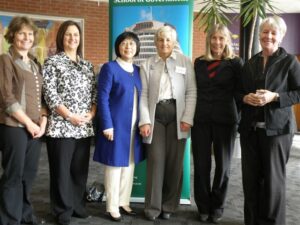
That the attendees enjoyed the day was evidenced by the number who stayed to chat for an hour or so after the conference had formally ended and from the emails since received. A number of requests have already been made for copies of the presentations (including from the Minister of Women’s Affairs) and these are available from lu.folau@stats.govt.nz. I would like to offer my personal thanks to all of the people and organisations that contributed to the success of this conference.
Sharleen Forbes
Development of Teaching Resources using GENSTAT SCHOOLS Package
2010: GENSTAT SCHOOLS is available for free use in all New Zealand schools. The $1000 grant from the Campbell Fund has paid for the accommodation in Dunedin for one night of David Baird when he travelled to Dunedin to present a session on GENSTAT SCHOOLS to local High School Heads of Department (Mathematics) and other invited people. There were 14 people at this meeting. It has resulted in productive work developing resource materials based on the new statistics curriculum being introduced in New Zealand.
The balance of the grant is paying Ross Haines, an honours statistics student at the University of Otago, to develop lessons for school teachers using GENSTAT SCHOOLS based on the data sets described in the 18 videos of statistics in action which have been recorded using an earlier Campbell Fund grant. Ross will be resuming this work as soon as his first semester exams are completed in late June. The intention is to have a comprehensive set of lessons for teachers using GENSTAT by the start of next year.
John Harraway
New Zealand Mathematics and Statistics Postgraduate Conference 2009
2009: A grant of $500 was provided to support statistical students travelling to this conference, which was held in Foxton in November 2009.
Report on the New Zealand Mathematics and Statistics Postgraduate (NZMASP) Conference, November 2009
For three days last month the normally quiet seaside township of Foxton Beach became a hive of mathematical and statistical enterprise with the 3rd annual New Zealand Maths And Statistics Postgraduate conference, NZMASP, held there over the 23rd-26th November 2009. As in previous years, the conference was well attended (57 students enrolled from honours, masters, and doctorate degrees) and was well represented by most of the New Zealand universities.
There was also a good spread of subjects with approximately 1/3 each of the talks split between pure mathematics, applied mathematics, and statistics.
The student presentations were very enjoyable and the attendees gained valuable experience and an opportunity to test out and refine their talks ahead of bigger events such as the New Zealand Mathematics Colloquium. Of particular note were talks from Shannon Ezzat (university of Canterbury) who took out the best pure mathematics talk, Rachael Tappenden (University of Canterbury) who presented the best applied mathematics talk, Lyndon Walker (University of Auckland) who won the best statistics talk, and Yousaf Habib (University of Auckland) who was voted the “peoples choice” for 2009. Also, two members of the “Calcium Mafia” (their words, not mine!), Emily Harvey and Katie Sharp, from the University of Auckland were highly commended.
The meeting was co-directed by Atheer Matroud and Luke Fullard of the Institute of Fundamental Sciences, Massey University and organised by Haydn Cooper at Massey Albany, Brigid Betz-Stablein at IFS, Massey, Christopher Ball at Victoria University, Shannon Ezzat of the University of Canterbury, and Aidin Jalilzadeh of the University of Otago.
The conference organisers would like to thank the sponsors of this event for encouraging and enabling the professional development of postgraduate students throughout New Zealand. The sponsors this year were: NZMS; NZIMA; ANZIAM; NZSA; Hoare Research Software Ltd.; Statistics New Zealand; SAS; Institute of Fundamental Sciences, Massey University; Mathematics and Statistics Department, University of Canterbury; Mathematics and Statistics Department, University of Auckland; School of Mathematics, Statistics and Operations Research, Victoria University.
Student feedback received from the NZMASP conferences included:
“NZMASP was a good opportunity to network with other maths and stats postgrad students. On both a social and professional research level this was very valuable.”
“Getting to see stats, applied maths and pure maths talks gave students the opportunity to see what was being done in related disciplines. There were actually strong links between some of the work done in applied maths and stats, i.e. work in genetics and biomath/stats modelling. I think there was definitely value in having the 3 groups together.”
“NZMASP was a good opportunity for more senior postgraduate students to have the experience of: chairing sessions, organising + running a conference, evaluating abstracts etc.”
We all look forward to the 2010 event. We hope this conference becomes an institution for the mathematics and statistics postgraduate students of New Zealand.
New Zealand Mathematics and Statistics Postgraduate Conference 2008
2008: A grant of $500 was provided to support statistical students travelling to this conference, which was held in Whitianga in November 2008.
Report on the New Zealand Mathematics and Statistics Postgraduate (NZMASP) Conference, November 2008
Building on the success of the New Zealand Mathematics and Statistics Postgraduate Conference, held last year in 2007 in Queenstown. This meeting, like last year, included Honours, Masters and Doctoral students who are affiliated with Universities in New Zealand. There were 63 Mathematics and Statistics postgraduate students, from all of the New Zealand Universities, who travelled to Whitianga for this three day meeting. The talks at the meeting were diverse, ranging in topic from Representation theory to Queueing theory, from Phylogenetics to Topology. The quality of presentations was high with all students taking up the challenge of explaining their work to a more diverse audience than other conferences. Mareike Fischer’s presentation titled, ‘Why DNA Sequences can be Perfectly Misleading’ was chosen for the New Zealand Institute of Mathematics & its Applications (NZIMA) Best Presentation Award. Peter (Johnny) Humphries’s Recreational Mathematics presentation on ‘Nesting Polynomials in Infinite Radicals’ earned him the Peoples’ Choice Award sponsored by Hoare Research Software (HRS).
The meeting was co-directed by Howard Cohl and Alethea Rea from the Departments of Mathematics and the Department of Statistics respectively at the University of Auckland and organised by Maarten Jordens and Haydn Cooper at Massey Albany, Beata Faller at the University of Canterbury, Dion O’Neale at Massey Palmerston North, and Lyndon Walker of the Department of Statistics at the University of Auckland.
Funding was given by the The University of Auckland Department of Mathematics, The University of Auckland Department of Statistics, The New Zealand Institute of Mathematics & its Applications, The New Zealand Mathematical Society, The Institute of Information and Mathematical Sciences at Massey University, Albany, The New Zealand Institute of Advanced Study at Massey University, Albany, Australian and New Zealand Industrial and Applied Mathematics, The New Zealand Statistical Association, and Hoare Research Software Ltd. The success of this conference indicates that it should be a fixture on the New Zealand Mathematical Conference scene. Keep on rolling on to NZMASP 2009!
The Educational DVD Project
2005-2006: The DVD: Statistics in Research: A Visual Teaching Resource was created by John Harraway (University of Otago) and filmed at and subsequent to the NZSA 2005 Conference in Dunedin. It is now available through the CASM Unit, University of Otago. It contains nine case studies, and has an accompanying data CD. See the linked pdf file for full details. It was edited by John Harraway and Robert van der Vyver, and jointly sponsored by NZSA, with a $750 grant from the Campbell Bequest Fund, and HEDC, University of Otago.
John Harraway writes (12 September 2007):
The grant of $750 was received in 2005 to assist with development of a DVD and CD for school use and for use in teaching some preliminary classes at University. The DVD contains movies and powerpoints of seven researchers at the University of Otago plus some material from Statistics New Zealand. The CD contains the data used by the researchers and it is hoped this may provide ideas for project work in schools. 250 DVD/CD packs were produced. There are 27 remaining. About 195 have been purchased by schools in New Zealand for use in year 13 and the balance of 28 have been distributed to the presenters and the Education Committee of the New Zealand Statistics Association. The grant was used to pay for a member of staff of the Higher Education Development Unit at the University of Otago to travel to Christchurch to record the contributions from Statistics New Zealand. Also to help with the cost of production of the DVD/CD pack in Auckland. It was not intended to profit from the sales, just to break even.
The idea for the DVD/CD developed at the NZ Statistics Association Conference in Dunedin in 2005. Papers have been presented on the DVD at the NZ Statistics Association Conference in Christchurch in 2007. The material in the DVD/CD may be slightly complicated for school use. But the project was a move into the unknown. It is hoped that a second DVD/CD can be produced involving the advice from a school teacher to ensure that the product is presented at the appropriate level. There is some interest in this from the American Statistics Association Journal STATS: the magazine for students of statistics.
The New Zealand Statistician on CD project
2002-2004: The journal archive of the New Zealand Statistician (the official journal of the NZSA between 1966 and 1997) was converted to pdf format and a CD published of the entire contents of the NZS. This project was supervised by Murray Jorgensen and Harold Henderson. The total cost of the project was $1208. About 100 copies of the CD have been distributed to September 2007. For further information see: NZSA ‘New Zealand Statistician’ Page.
The Otago Survey of Statisticians
2003: A Campbell Bequest Fund grant of $1000 was made in 2003 to cover postage in a University of Otago survey of PhD graduates from six of the New Zealand Universities in a range of subjects which have statistics prerequisites. The graduates had had two years in which to find employment because the purpose of the study was to discover what statistical techniques these graduates were using in the workplace and discover if there were any deficiencies in their university statistics training. A total of 977 graduates responded to our postal survey. This represented a 40% response rate after follow up, which raised the number of respondents from around 780 to the 977.
One paper has been published in SERJ (Statistics Education Research Journal). The reference is Harraway, J.A. and Barker, R.J. Statistics in the workplace: a survey of use by recent graduates with higher degrees. Statistics Education Research Journal, 4(2): 43-58 (2005).
A second report was presented at ICOTS7 in Brazil where an item response analysis on the data was reported. The reference is Harraway, J.A. and Andrade, D.F. An item response analysis of statistics use in the workplace. Proceedings of the Seventh International Conference on Teaching Statistics, Salvador Bahia, Brazil. International Statistical Institute. Voorburg, the Netherlands (2006).
